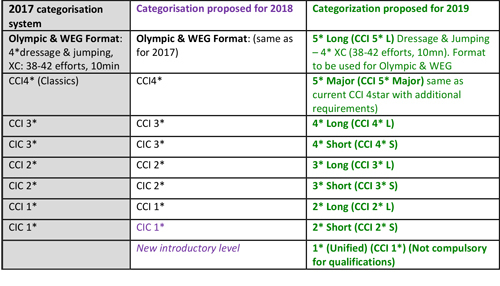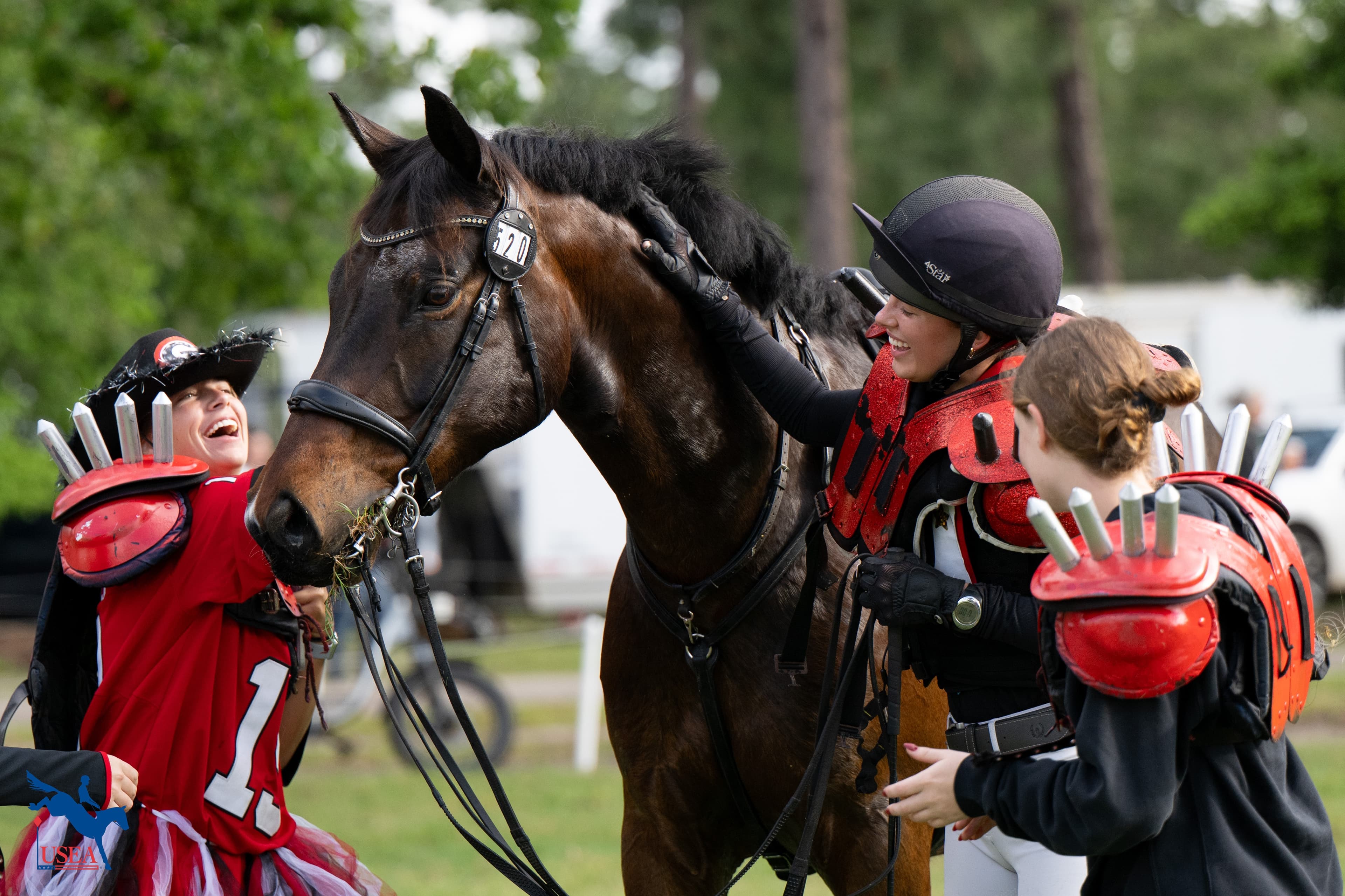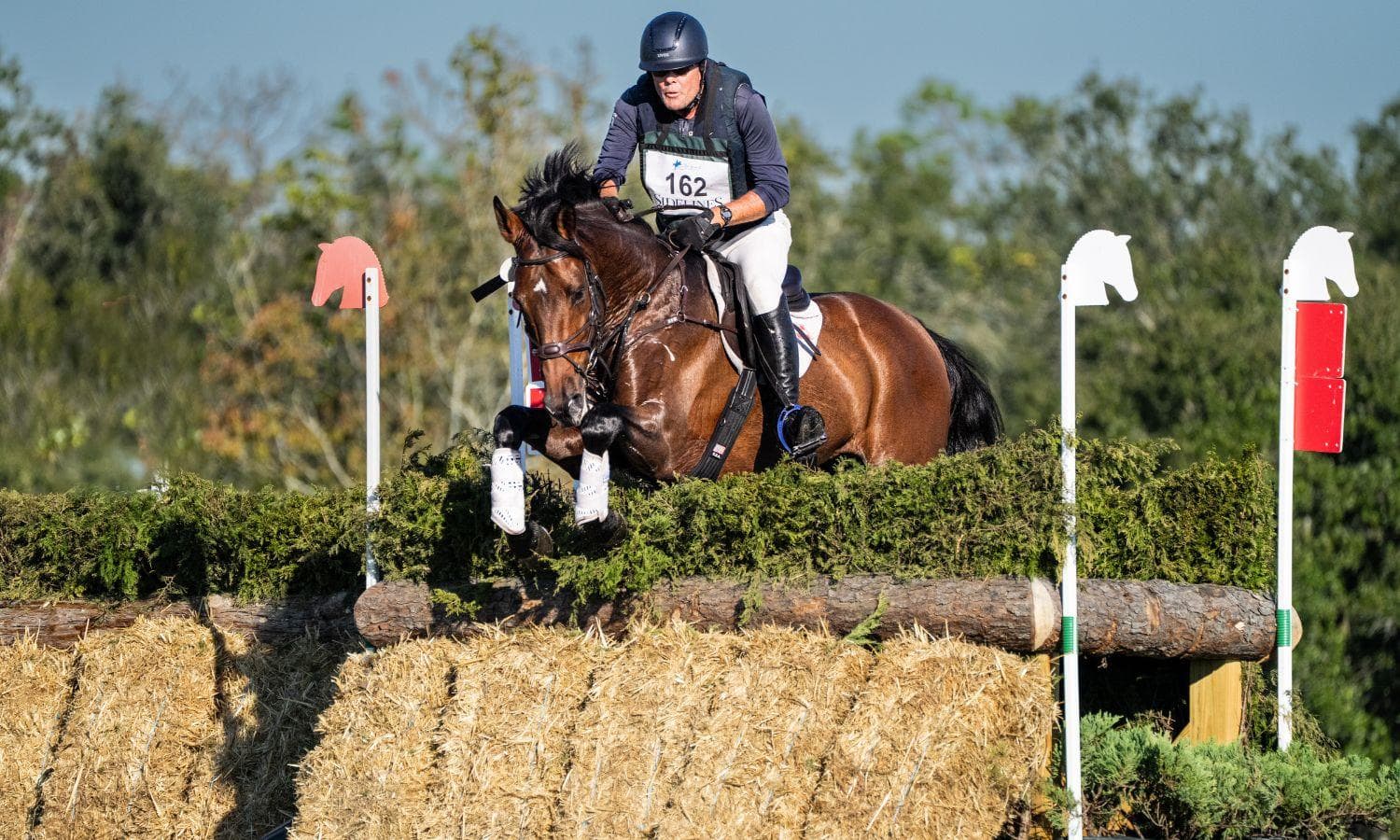2017 FEI General Assembly Decisions

FEI President Ingmar De Vos opened the FEI General Assembly in the Uruguayan capital Montevideo, delivering the keynote address to just under 250 delegates representing 106 of the FEI’s 134 National Federations.
“Our sport continues to grow and is expanding at an amazing rate”, the FEI President said. “In 10 years the number of events have more than doubled and we are now seeing a steady and annual increase of around eight percent in terms of events and four to five percent in terms of registered athletes. These are incredible statistics – especially in this very diverse and competitive sports market. And not only is our sport growing but the quality and the presentation is better than ever.
“We have had some fantastic events this year, many World and Continental Championships for seniors, but also many aimed at the next generation, our youth athletes across all the FEI disciplines. We also had brilliant World Cup Finals in Omaha, great sport and an unbelievable atmosphere full of suspense and anticipation. And more recently, the first Longines FEI Nations Cup Jumping Final in Barcelona, it was everything we had hoped for and more.”
The FEI President also spoke about the incredible community spirit within the equestrian world: “I have had the pleasure of visiting many countries and getting to know the individuals working tirelessly behind the scenes to grow the sport. We are fortunate to have such a passionate community – we may be diverse, we may not always agree, but our heart is in the right place.”
Olympic qualification procedures for Tokyo 2020 Olympic Games
The proposed Olympic Qualification procedures for the Tokyo 2020 Olympic Games for all three Olympic disciplines: jumping, dressage and eventing were approved by the General Assembly and will now go to the IOC Executive Board for final approval in 2018.
Clarification was given on the deadline to achieve Minimum Eligibility Requirements (Certificate of Capability) across all three disciplines, changing 18 May 2020 to “five weeks before the sports entry deadline for Tokyo2020”. The sports entry deadline will be agreed between the IOC and Tokyo2020 next year.
The reallocation of unused individual quota places in jumping for the Pan American Games was also clarified:
“If the unused individual quota place is earned through the 2019 Pan Am Games, the quota place will be reallocated to the NOC of the next best ranked Athlete on the overall individual classification at the 2019 Pan Am Games, excluding NOCs already qualified.”
The annex can be found here.
Eventing
The General Assembly approved modifications to the Eventing Rules. The main amendments included:
The implementation of the new competition structure as of January 1, 2019.
The new competition structure has adapted to the current global level of the sport, supporting the implementation of the Olympic strategy. It is also part of the continued effort to address risk management and the cost effectiveness of the discipline together with encouraging the development of the number of nations participating in eventing.

For implementation in 2018: the new non-compulsory level at 1m05 max height for cross-country, defined as “Introductory”.
The removal of the dressage coefficient, as of January 1, 2018, to address risk management issues through rebalancing the importance of cross-country skills.
It is now possible that National Federations can take over the responsibility of implement the FEI minimum requirements for Arena Eventing. The Organizing Committee can either apply to hold the competition through the FEI system or the National Federation will be responsible for the enforcement of these minimum compulsory requirements, to manage and limit risk.
These changes can be viewed here in due course.
The annex can be found here
Veterinary Regulations
The FEI Veterinary Department carried out a complete revision of the Veterinary Regulations during 2017 and this full revision was approved by the General Assembly.
The principle aims of the revision were to bring a more logical structure to the Veterinary Regulations, clarifications and a clear focus on regulatory matters. A number of notable changes to the Veterinary Regulations include:
Veterinary Treatment: under the newly approved rules, Horses can no longer be treated by injection with any substance prior to competition on the day they are competing. An exception will be granted for emergency treatments and classes starting at 18:00 or later. In addition to changes in the treatment of horses at events, vaccines must not be given to horses at events.
Permitted Equine Therapists & Supportive Therapies: Clarification has been provided regarding the supportive therapies that can be used during FEI events and the personnel permitted to carry them out. Supportive therapies have been categorised into Non-Restricted and Restricted Therapies. Restricted Therapies must be carried out by trained personnel, known as Permitted Equine Therapists. Permitted Equine Therapists will be listed on the FEI database and issued with an FEI ID card. Separate guidelines will be produced and circulated to National Federations concerning the training requirements and enrolment of Permitted Equine Therapists. Stewards will be able to carry out checks to inspect the Permitted Equine Therapist’s ID card and verify the therapy they are carrying out.
Clean Sport
The Chair of the Veterinary Committee presented an update on the Global Equine Anti-Doping Control Medication Programme (EADCMP).
The General Assembly approved modifications to the Equine Anti-Doping & Controlled Medication Regulations (EADCMR) including a new Special Procedure for Minors which will come into effect on January 1, 2018, operating in a similar way to the current Administrative/FastTrack Procedure for Controlled Medication cases.
Details on all changes can be viewed here in due course.
Elections
David O’Connor (USA) was elected as Chair of the FEI Eventing Committee for the four-year term 2017-2021.
Medical Committee report
The Chair of the Medical Committee updated the General Assembly on the work being carried out in relation to athlete health and safety following the FEI Bureau’s April 2017 mandate to the Medical Committee to address a number of matters (in priority order) and to develop the corresponding projects. The Committee will implement measures in the areas outlined below:
Concussion
• Education / encouraging use of concussion recognition and assessment tools (available on FEI website)
• More user-friendly version of the guidelines for the management of concussion at FEI Events
Return to Play policy
- Review and possibly complete existing regulatory frame
- Provide best practice guidelines to NFs that do not have a return to play policy
Injury reporting & surveillance
- All disciplines (except Eventing which has an extensive data collection system already in place): improve reporting forms; set criteria for follow up with athlete’s NF in case of serious accidents
- Develop an injury surveillance system
Helmet rules
- Simplify rules; consider harmonising to offer equal protection to all
Prize giving protocols
- Review all protocols to improve safety
Other areas of concern that the Medical Chair highlighted were harassment and abuse, and recreational drug use at events.
IT Update
Delegates at the General Assembly were provided with an update on the work of the FEI IT Department. Notable work streams this year include:
FEI Campus: The e-learning platform FEI Campus was fully launched in June 2017. The IT and Education & Standards Departments managed the project providing an efficient education platform for FEI Officials as well as the larger equestrian community.
FEI Entry System: The FEI Online Entry System has been operational for five years for Jumping and is now also used in Endurance, Dressage, Eventing and Driving. A new version of the FEI online Entry System with improved interfaces and workflows is now being developed on the basis of the experience and feedback gathered. This new version of the FEI Entry System will be released together with the FEI Online Invitation System for Jumping in 2018.
Risk Management in Eventing: In order to continuously improve the risk monitoring in eventing, an important functionality has been added to the Risk Management software to track the details of all obstacles on each FEI cross-country course. This will allow for the collection of additional data to be used for analytical and statistical purposes. The IT and Eventing Departments conducted a first pilot year with the Irish company EquiRatings, to study the future implementation and use of the EquiRatings Quality Index (ERQI) for FEI competitions.
Tokyo 2020 Olympic and Paralympic Games update
Tokyo2020 Equestrian Sport Manager Haruta Yasuhiko gave a progress report to the General Assembly, talking delegates through the two venues at Baji Koen and Sea Forest. He talked through the history of Baji Koen, which was used for the Tokyo 1964 Olympic Games, its location, construction timelines as well as an overview of quarantine and stabling plans. The project is on schedule with a very high standard of equestrian facilities planned with support from the Japan Racing Association. Demolition of the old facilities at the main site at Baji Koen has now been completed and construction work will commence next year.
The Olympic Test Event is provisionally scheduled for August 10-12 2019, with dressage and jumping at Baji Koen and cross-country at Sea Forest.
Visit the Tokyo2020 website here
FEI World Equestrian Games™ 2022
The FEI President updated the General Assembly on the FEI World Equestrian Games™ 2022.
Following the very recent decision of the bidder from Samorin (SVK) not to sign the host agreement, despite lengthy discussions with the FEI, the Samorin team has withdrawn its bid. As a result, the FEI Bureau has decided to re-open the bidding process for the 2022 edition of the Games.
Under a revised timeline, the FEI World Equestrian Games™ 2022 will be allocated at the in-person FEI Bureau meeting in November 2018.
“We are confident there will be candidates, but these are complex Games and we need to make sure we do it right”, the FEI President told the General Assembly.
The full General Assembly was live streamed and you can rewatch it here.















